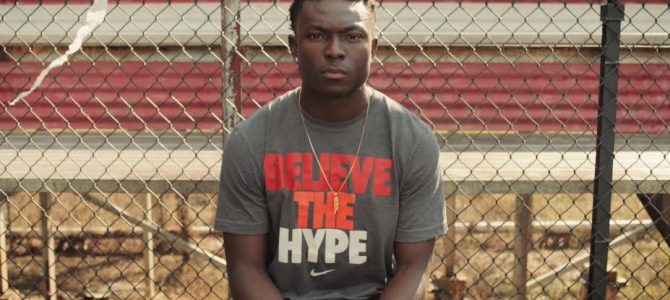
Internet giant Netflix’s latest hit series “Stranger Things” has received rave reviews across the board for its storyline and the homage it pays to “kid-centric” 1980s supernatural-mystery shows. As good as “Stranger Things” is, its wild success has obscured another great Netflix series released around the same time: “Last Chance U.”
The new docu-series debuted on July 29 with the release of all six episodes simultaneously. “Last Chance U” follows the Lions, the football team of East Mississippi Community College (EMCC, as it’s referred to), from preseason to postseason, and all the games in between. What makes this series special among docu-series is both the unfettered access the cameras were granted, and the story.
EMCC is not a typical community college with a community college-level football program. The school views itself as a school of last resort for troubled athletes who have either fallen from the sun of NCAA programs or else struggled and fought their way to EMCC as their first choice. The series splits its time between documenting football, following the players in their academic pursuits, and occasionally going into the detail of their personal lives.
Tough Love for Tough Dudes
What becomes obvious — sometimes painfully so — is just how hardscrabble these players and their communities are. Some context: EMCC is located in podunk Scooba, Mississippi, population 716. The downtown district, to the extent it exists, is composed of dilapidated and abandoned buildings from a time long gone. The players, coaches, and academic advisors speak with a Southern twang so thick that Netflix added subtitles, just in case you couldn’t cut through it on your own.
And the style of football that’s played is not glitzy, like the NFL, but militaristic, to mold players for success. Head coach Buddy Stephens acts more like a drill sergeant than a head coach, providing every player a mix of hardass coaching and tough love, and sometimes going overboard on the former and ignoring the latter.
Watching “Last Chance U” is like looking through a telescope to see forgotten parts of America buried in the backwoods of the South. People really do speak with the stereotypical twang; they really do live in trailers and drive ATVs; they really do love their football; and a lot of them really do come from extreme poverty that we like to think was eradicated a long time ago. But despite all the hurdles the players face, from poverty to apathy, most scrape enough success together to get somewhere and make something of their lives.
What makes the series great is not always the football. It’s the relationship between the team and community. The Lions are one of the last glues binding the people from Scooba and its surroundings together. They support the team, sometimes religiously so, and in turn the Lions make them proud (they won the state championship three times in four years). The school itself — and academic advisor Brittany Wagner, in particular — acts a support network for the athletes, helping them keep their grades up just enough to get through a four-year college. EMCC is portrayed as a school that is invested in academics as much as it’s invested in football. Professors give no easy breaks, although they are willing to meet the players halfway if means watching them succeed.
The in-depth look at the athletes is equal parts frustrating, heartbreaking, and hopeful. Most of the football players are completely apathetic about school and learning; they’re really only there because college ball is the only way to get into the NFL. Apathy runs deep, and Wagner faces a Herculean effort to push them all towards graduation.
Of course, this apathy must come from somewhere, and a number of players come from broken homes and poverty. D.J. Law, the Lion’s gifted running back, spent the season on the verge of academic failure, but he knew he didn’t want to wind up in prison like his father. The same goes for Ronald Ollie, the defensive lineman. His mother was murdered by her estranged husband when Ollie was an infant. His academic carelessness was evident, but his on-field dedication was hopeful.
A Beautiful Portrayal of a Gritty Story
Although the series is brief — six hour-long episodes — it is tied together by a beautiful cinematography that reminds us moving images can tell a story as much as words on a page can. The football sequences (and they are truly sequences) blend music, images, and camera effects to portray the battle on the gridiron. It feels, at times, more like a film than a television show.
Even beyond the camerawork, the level of access is completely unfettered, which allows viewers to form a bond of sorts with the athletes and their support network. I found myself rooting for the Lions more and more every episode, and hoping against hope they wouldn’t sabotage themselves by sinking to dirty play and unsportsmanlike conduct. The fact that they did, and more than once, shows reality isn’t as neat as we tend to think in our romanticized images of college football. The Lions are not Knute Rockne’s Fighting Irish.
“Stranger Things” may be getting all the press, and perhaps rightly so. But “Last Chance U” is well worth the time to watch and soak in everything it portrays: extreme poverty, extreme apathy, but in the midst of all that, hope.









